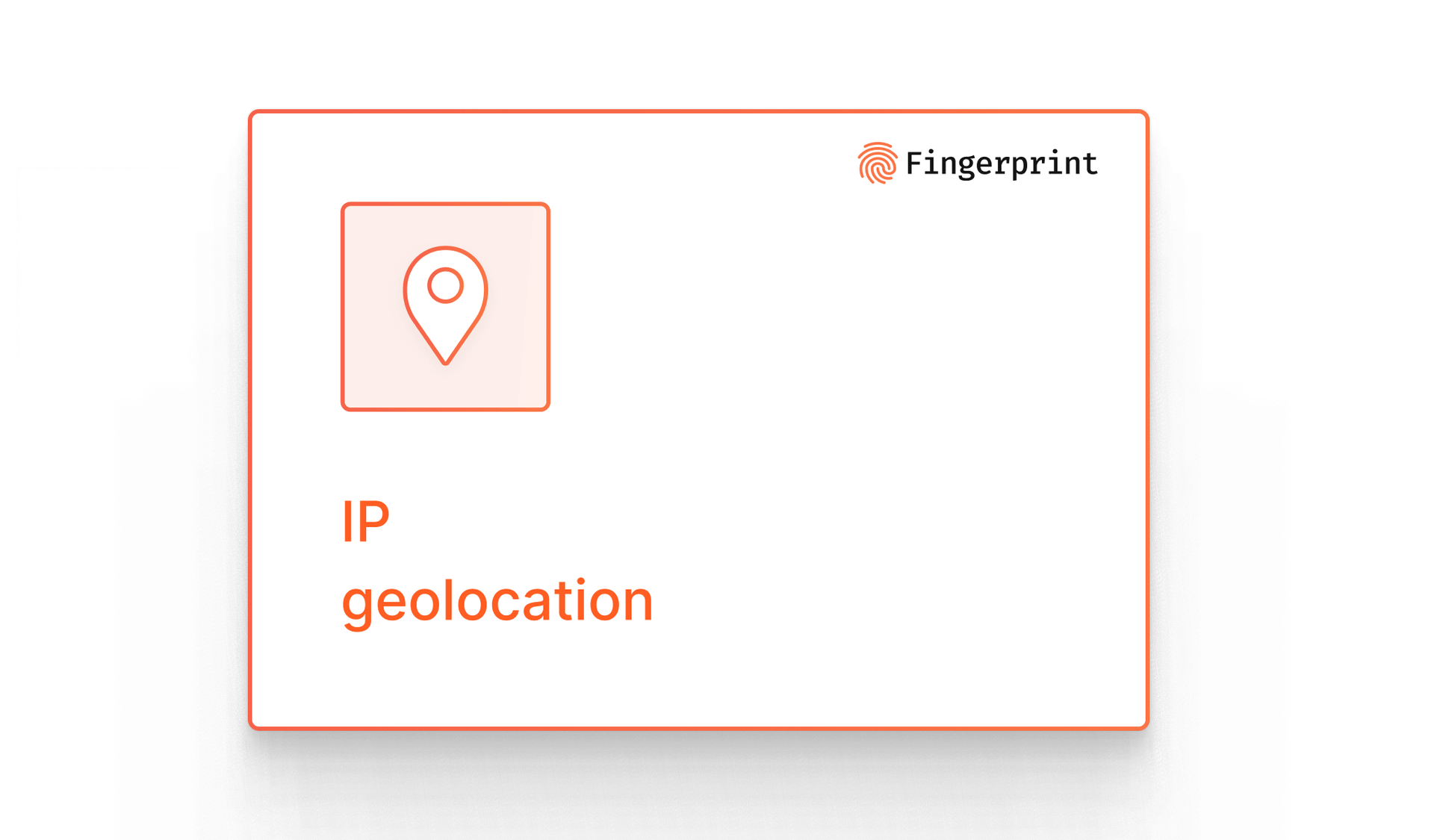
In our continuing series, we’re explaining each of our Smart Signals, how they work, and how they provide the strongest and most accurate device intelligence solution when combined. This article describes what IP geolocation is, how it works, how to use it for fraud detection and prevention, and how to use it in conjunction with our other Smart Signals.
What is IP geolocation, and how does it work?
IP geolocation is a method of determining the geographic location of a visiting device by detecting its IP address. Each device connected to the internet is assigned an IP (Internet Protocol) address. This unique identifier works back to its source, providing an approximate location of the device.
While it doesn’t provide an exact address, the information is typically accurate enough to identify a user’s city or region. IP geolocation is generally used with other user identification methods, such as a browser or device fingerprint.
The challenges of accuracy with IP geolocation
While helpful for identifying good and potentially bad users, IP geolocation does face accuracy challenges. The accuracy of IP geolocation can vary due to factors such as the use of virtual private networks (VPNs) and proxies, which can mask a user’s valid location. You’ll want to find an IP geolocation provider that regularly updates its database and maintains its libraries consistently, and as recommended above, combine it with other device identification methods to ensure an accurate and stable way of identifying visitors and users.
IP geolocation for fraud detection and prevention
IP geolocation is crucial in detecting and preventing fraud when combined with other identification methods. Organizations can identify suspicious activities by analyzing IP addresses, such as multiple login attempts from different locations, indicating potential fraudulent behavior from specific IP addresses, which can lead to immediate action such as, blocking the IP address or flagging the transactions for further investigation. Additionally, organizations are able to preemptively block users and transactions from specific geographic locations should they not want to process orders from those areas.
In our recent blog post, you can learn more about blocking IP addresses and why combining identification methods such as IP blocklist matching and geolocation can create highly accurate and robust fraud detection and prevention tactics.
Additional uses for IP geolocation
IP geolocation offers additional benefits to enhance the user experience by providing content tailored to their geographical location. For example, this could mean showing relevant products, services, or offers based on the user’s location.
The power of IP geolocation combined with Fingerprint’s device intelligence solution
As mentioned in this article, we highly recommend using IP geolocation alongside other device identification methods, such as browser fingerprinting, VPN detection, and IP blocklist matching. When combined, these create a highly accurate and stable device identifier that can help you detect and prevent fraudulent activities across your site, including at sign-up, login, and checkout. Learn more about our 99.5% accurate device intelligence here.
You can see IP geolocation alongside our other identification methods on our live demo.
FAQ
IP geolocation is often used as a supplementary security measure to enhance other practices like two-factor authentication. While two-factor authentication strengthens security by requiring additional user verification, IP geolocation adds another layer by verifying the user’s location.
If a login attempt is made from an unexpected location, it could be flagged as suspicious. However, the specific ways in which IP geolocation interacts with two-factor authentication can vary depending on the systems and protocols in place.
The use of IP geolocation does raise certain privacy concerns. By nature, it involves tracking the geographical location of users, which could potentially be used for intrusive purposes. However, it’s important to note that IP geolocation typically only provides approximate locations and is not usually accurate enough to pinpoint an exact address.
Furthermore, responsible companies using IP geolocation should follow best practices for data protection, including anonymizing data and obtaining user consent where necessary.
Yes, sophisticated fraudsters may attempt to bypass or manipulate IP geolocation, often through the use of VPNs or proxies that can mask or alter the apparent location of an IP address.
However, many IP geolocation services have measures in place to detect such attempts. For example, they may maintain databases of known proxy servers or use advanced algorithms to identify patterns consistent with VPN use. Despite these challenges, IP geolocation remains a valuable tool in the fight against online fraud.



